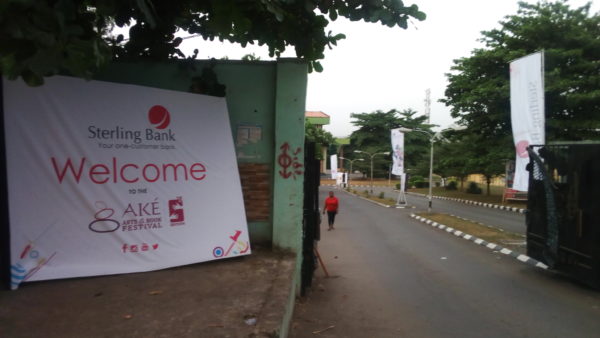
And because no man is permitted entry into heaven without a sacrifice of his own. . . the story of your journey to Ake.
1.
Abeokuta was not all too welcoming in the way that glorious Meccas were meant to embrace pilgrims. Its austere collection of distinct brown roofs arranged in military fashion served as no compensating sight in the slugfest that was the traffic. The gridlock was intensified by the smoky heat of the crowded bus. Running rather late, you had to shoot Dayo Agarau a text to assure him you hadn’t been kidnapped.
At the gates of the Cultural Centre, drama. Alighting from the cab, you told the driver you would need to get your bag from the boot. But the innocent man, God bless his drunk soul, was focused on the sonic magic oozing from his radio, was oblivious to every word you spoke. As your feet touched the ground, he zoomed off. Your “E duro, help-me-stop-him!” screams were impotent. Your clothes, shoes, books. All. Gone. A 400-naira bike ride, bouts of panic, pleas to your Village People, and ten whispered prayers later, you were able to get his phone number from his colleagues at the garage where you’d boarded the taxi. You were able to get him to turn back, apologise profusely, and get you back to your destination. Telling Dayo this story, he simply laughed and shook his head. You were sure it would inspire a poem of his someday—at least, the experience hadn’t been in vain.
That night, as you sat to watch a movie in Cinema Hall, with Dayo echoing your thoughts about its low-budget colour, you wondered if what happened had been the god of Ake demanding a sacrifice from you. You slept well at the hotel, telling your superstitious self this was a sign of great things to come.
2.
You saw Nnedi Okorafor. Yes, the Nnedi Okorafor. A glorious, divine thing of towering height, her skin radiant, her locks carrying a mythology of stories, each symbolic and simplified at once. Of course you did not approach her. The flame in her eyes seemed a little too scorching, and you feared you would melt if you moved any closer.
You spent the whole day looking forward to the arrival of the one person you wanted to see the most. Checking your watch and his availability status on Facebook Messenger like a bloody stalker, you paced the entrance, hoping the wind would drag him into your space. While you waited, someone who looked like an alternate version of Romeo Oriogun walked in, his body bursting with light and life and music. He looked nothing like the Romeo you had built up in your head from his Facebook posts—the withdrawn, delicate soul. Walking past you was a man with a swaggered gait, and a voice that held the wind still. Because you two had never held a conversation online before, you were surprised when he immediately recognised you upon introduction.
“When is Otosirieze coming?”
“He’s on his way,” he said, not knowing that the imprecision of such statements made you rather uncomfortable.
And then he came. While you waited in front of Herbert Ogunde Hall, pondering whether to go in for the night concert or to stay behind to continue conversations with new friends; while you stared at Nnedi Okorafor as she sat with her manager near the entrance—he came. All the tall slenderness his Facebook pictures promised. You walked up to him and wondered if he would immediately recognise the guy he had had numerous chats and a few phone calls with. He smiled faintly. He did.
“I wondered when you would be coming.”
Your obsession with meeting Otosirieze Obi-Young began the moment you read his essay on Beyoncé, Bob Dylan and Adichie. It intensified after you read his interview with Gaamangwe Mogami of Africa in Dialogue. It got plain weird upon your encounter with his essay, “The Coo of a Blue-Plumed Bird.” This is who you want to be when you grow up. “You look better here than in your Facebook photos,” he said, and you wondered whether you should take it as a mere compliment or a motivation to flood your Facebook profile with Yoruba-demon-quality pictures.
Meeting Adams Adeosun again was the manifestation of a purity of sorts. He embodied the precocious aptitude you saw in the mirror on days you permitted yourself a little smugness. His calm manner and calculated words stirred something in you, an inexplicable kind of hope. You’d come to cherish these little moments of magic. You first met a few months back during a program you organised at the University of Ibadan, where he was one of your many guests. There had been little time to chat. Now he was here. Going nowhere. You wanted to find out more about him. So, since you believed the world was divided into two groups of people—those who loved Chimamanda Ngozi Adichie and those who did not read—you assumed he was a big fan of Adichie’s. You were right. You asked what his favourite book of hers was, and when he said Purple Hibiscus, you mock-threatened to have him escorted out of the building. Days later, Roy Udeh-Ubaka, whom you would christen Shady Roy, would react to Adams’ choice when you told him.
“Rank her works,” you asked Shady Roy.
“Half of a Yellow Sun. Americanah. The Thing Around Your Neck. We Should All Be Feminists. . . .” Hibiscus was not coming anytime soon, and when you realised the joke, you joined Otosirieze in laughing.
Laughter.
That was common at Ake.
Raucous, full-throated things that colonized mouths. As friends and cyber-pals met, all around were celebratory laughs. There was so much more in the air, too. Joy. Friendship. Words. Love. Stories. Re-union. More laughter. Embrace. Family. Home.
3.
You refused to get out of bed. Your nerves had been worked into overdrive. Even when James, Soji and Dayo told you they were leaving the hotel, you just rolled to the other side of the bed, soaking in the wrapped warmth of the sheets. It was Thursday, the first full day of events. You were overwhelmed by the predictably Brobdingnagian thrill of it all. You remembered that Wale Ayinla was expecting you at the Welcome Ceremony and you suddened out of bed and into the bathroom. As you had forecast, the Welcome Ceremony began late, but the Cinema Hall was already crowded. You found yourself a seat. Otosirieze was easy to spot in the swarm of heads: an upside to being that tall, no pun intended.
Once again, you bore witness to the wonder that is Nnedi Okorafor. Her gait, her talk, her smile—they were shimmering reflections of a goddess. She, alongside Tom Ilube, announced the Nommo Awards for speculative fiction. In a moment of overwhelming appreciation for the genre, you considered changing the draft of your novel to suit the dictates of speculative fiction. Foolish talk, of course. Onstage, Adunni Nefertiti showed you what music could really be. Dressed in exquisitely traditional outfits and large turbans—a nod to the Egyptian queen they are named after—the singers exuded a beam. In her commanding voice, the lead singer led the band into a chorus of multi-lingual miracles. Each song, spoken in a different language you were unlearned in, had its own beauty. It confirmed what you’d always believed: music transcends language; music transcends time; music is a unity against all barriers.
While the honorary awards were being dished out, you wondered what you were doing with your life (Spoiler alert: this will keep happening throughout the festival.) Here were people winning residences to Germany—or was it Russia?—and here you were seated, doing nothing. You turned your back for a moment and there was Wale Ayinla standing near the entrance. You waved and he waved. Wale was one of those people you only got to see once in a while, so you always made the best possible use of it.
TJ Benson was hilarious. And he met his match. The first time you saw him, he came over to introduce himself. Speak of humility. You knew who he was but you did not tell him so. The next time you saw each other, he came over to introduce himself again. “We’ve met. Like literally a few minutes ago,” you said. He apologized, and you both laughed it off. When this routine repeated itself one more time, you were determined to get vengeance. You introduced yourself to him at every turn you got. It was weird and refreshing. It became a running joke between you two.
The book chat between Yvonne Owuor and Ayobami Adebayo was a delight. While you didn’t expect some mind-blowing, over-the-top philosophical spectacle, the conversation was calm, with a silent depth. You went to Adams’ panel, out of curiosity. It was enlightening, a discussion on expression through multi-lingual channels and on the non-fiction form. Adams didn’t disappoint you. He held his own among the other brilliant panelists.
Just when you were beginning to feel the panels were drifting away from the theme, “This F-Word,” the next set of panels turned out appropriate fuck-yous at patriarchal mentalities. In the chat room was a true revelation of Soul: Sara Bletcher, Shirley Frimpong-Manso, Tope Oshin and Jade Osiberu were talking about filmmaking and the place of women in it. As you watched these powerful women talk about the deft ways they got their crews in order and got the job done, you wondered why there weren’t more women directing movies. You remembered what Patty Jenkins once said about directing being such a maternal job. Women had the same kind of firmness and empathy needed in equal measure to get those working to deliver according to their ability. In fact, leadership itself seems maternal. Perhaps the true reason many men don’t want patriarchy disrupted was the fear that if the playing field were to be leveled, women would take over. Now, that fear, you understood. These women on the panel seemed superhuman in navigating the difficulties peculiar to their job in Africa.
Speaking of superwomen, Mona Eltahawy brought an otherworldly chutzpah. Though you arrived late to her panel, you were able to catch more than a glimpse of her fire. You had never seen someone in real life throw as much expletives as on that stage. It was surreal. No one is going to set you free, she said. We pretend way too much and try to use the instrument of religion to silence women and their sense of total being. The way she spoke made you feel like a sinner, complicit in society’s hypocrisy. She schooled you in the sacred art of no-fucks-given. A queen!, you nearly cried when you realised you could not buy her book.
Meeting Kola Tubosun again was better than you had imagined. In 2016, you could barely introduce yourself to him as he hurried off after a visit to a programme organised by the Union of Campus Journalists. When you finally, properly introduced yourself to him, he smiled in a wide, embracing manner. Omo wa ni, he must have thought—you both belonged to the UCJ family. Speaking with him, you heard the same depth of thought that often appeared in his works.
4.
The world is made up of binaries: Theism/Atheism, Ronaldo/Messi, Liberal/Conservative, Samsung/Apple, Trump/Maturity, Star Wars/Star Trek, Beyoncé/Mediocrity, Pepsi/Coca-Cola, DC/Marvel. The last one got you into a pretend-war on your way to Olumo Rock. It began in the jam-packed bus while you watched the ancientness of Abeokuta settle into mudhouses and browning roofs. While kids waved and ran after your bus, as though they could smell the foreignness on your skins. So while discussing the Justice League trailer and how overtly comical Thor: Ragnarok is, someone from the back of the bus committed blasphemy and said DC movies are terrible. You got almost the whole bus in an argument, throwing shade at Marvel movies. You later found a face attached to the voice. It was Tolu Daniel.
Shady Roy is a bright, cheerful thing. There is something graceful in the way he pulls you in for a hug, friendly without restraint. Climbing atop the rock, he dragged you to take a photograph with him and Otosirieze. And oh, the rock is itself the monument it is made out to be. You felt yourself communing with history. “I can feel stories inside these rocks,” you said to someone. You imagined the kinds of lives lived here, the vestiges of wartime desperation. This was Abeokuta, after all, the home of stories borne of a discomfort with time itself. You would write an essay on that. But that would have to wait. You were at Ake. You were in heaven. That was all that mattered at the moment. The freedom was nothing like anything you’d seen before. Everyone was free to be, no matter what shape their being took. It was a utopic bubble, an uncaged enclosure where black birds were free to fly without getting their wings getting clipped. You were home.
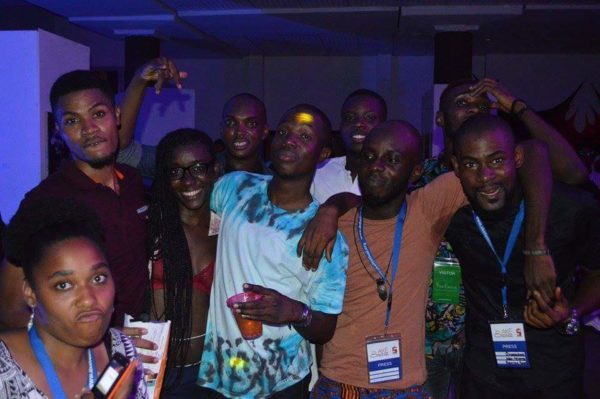
5.
The final day was the darkest. And they always were, weren’t they?
Beyond the delectable one-woman narration of Lola Shoneyin’s The Secret Lives of Baba Segi’s Wives by the electric Maimouna Jallow, you spent the whole day a bit watered down. “What’s wrong?” Otosirieze asked.
“Nothing. I am fine.”
All you could think of was loss. Of feeling. Of home. Of a temporary, earthly heaven. Last days symbolized finality and you were not ready for the goodbyes. How would you survive leaving this place? This collection of beautiful people who understood you in ways almost no one back home could? You were mildly depressed. Being the uncanny telepath, Otosirieze was able to wrestle it out of you. You told him your mind was going to explode with darkness. You were not ready to leave. As the day darkened, your mood brightened. Yet another lengthy conversation with Otosirieze later, you were feeling your usual groove back. Then Romeo gave you light. His words beamed you up; he gave you the best news you’d heard throughout the festival.
Shady Roy convinced you to come to the closing party, even though you would rather stay away. You needed no further reminder of finality. While you joined the queue waiting to be served drinks, Shady Roy could not hold his legs still. He moved slowly to the rhythm. Niniola’s “Maradona” was the soundtrack to this sight. Otosirieze’s got moves like Jagger. Swinging his arms in the air, his waist matching the fluidity of the music, his body said, “Look at me, I am scattering pieces of the sun on the dance floor!”
The past few days had been spent on intellectual discourses, but now the DJ, the ultimate alchemist, made a dance-floor rebel of every silent boy, a luxuriant dancing queen of every shy girl. Romeo, Dayo, James, TJ Benson, Roy, Chimee, Mona: everyone lost themselves in the hands of the music. This was art, the limitless flow of self. We all danced the way our bodies taught us to. As we swayed on the floor, our feet created a map of catastrophe, the ruthless destruction of restrictions. And in that moment, “This F-Word” became Freedom. We were broken from every foreign out-of-body narrative, we reclaimed our individual selves in the present. Music is home for lost boys. And girls. And in-betweens.
That night, back at the hotel, Dayo, James and Soji watched your extremities materialize and wondered if you were drunk. You laughed it off, but it didn’t help matters that you rolled out of bed laughing over something not at all funny. The cold of the ground was comforting. You lay there, unmoving.
6.
It is Sunday and everyone is departing. I already said most of my goodbyes last night. But as I prepare to leave, I go to the Cultural Centre one more time. I take in the near-empty Dining Hall. I imagine the place filled one more time and a dream-like sequence occurs before my eyes:
Otosirieze is sitting at a table, talking to Nkiacha. He invites me over to talk about my writing. At the press corner, TJ is going through some pictures, sees me and comes over to introduce himself. We both laugh. Romeo, drink in hand, comes to give me a hug and says, “Stay safe.” Dayo looks up from unstacking books from the shelf and waves at me. We exchange knowing smiles. Saddiq Dzukogi asks if I have ever been to the North, offers to give me a tour if I ever come. Nnedi Okorafor tries pronouncing my name but laughs as she keeps getting the inflection wrong.
But none of this is happening. None of them are here. And because no man is permitted exit from heaven without a souvenir of his own, the story of my journey to Ake ends with my decision to make my body a home to the memories of Abeokuta. I need no photographs. My body is enough. May it house the laughter and the pieces of heaven I got in Abeokuta. Amen.
About the Author:
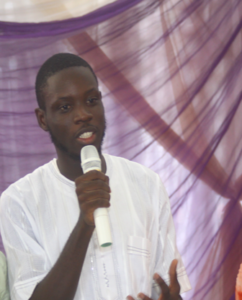 Kanyinsola Olorunnisola is a poet, essayist and writer of fiction. He writes from Ibadan, Nigeria. His debut poetry chapbook, In My Country, We Are All Crossdressers, is forthcoming from Praxis Magazine. He is the founder of the literary movement, SPRINNG, Society for the Promotion, Revitalization, and Improvement of the New Nigerian Generation. He loves experimental literature, pop culture, and Nigerian jollof rice.
Kanyinsola Olorunnisola is a poet, essayist and writer of fiction. He writes from Ibadan, Nigeria. His debut poetry chapbook, In My Country, We Are All Crossdressers, is forthcoming from Praxis Magazine. He is the founder of the literary movement, SPRINNG, Society for the Promotion, Revitalization, and Improvement of the New Nigerian Generation. He loves experimental literature, pop culture, and Nigerian jollof rice.


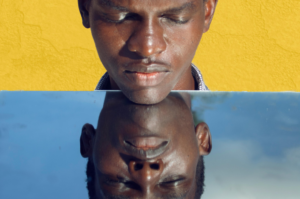



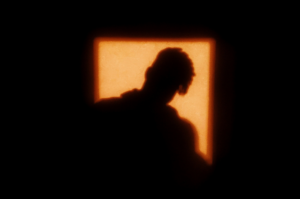
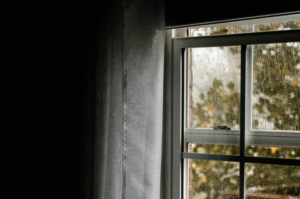

COMMENTS -
Reader Interactions